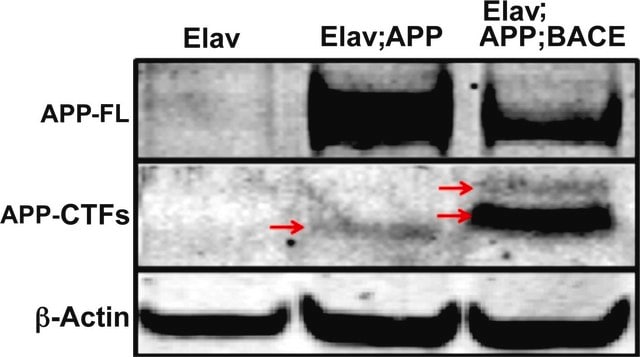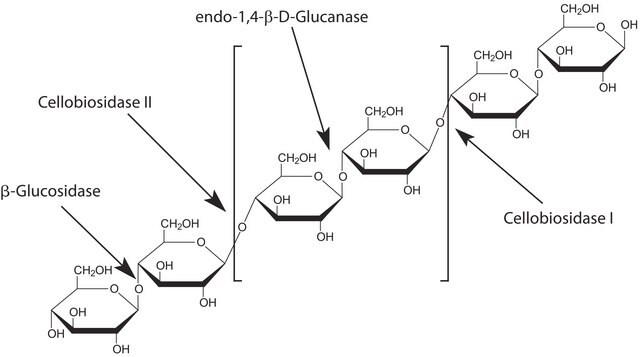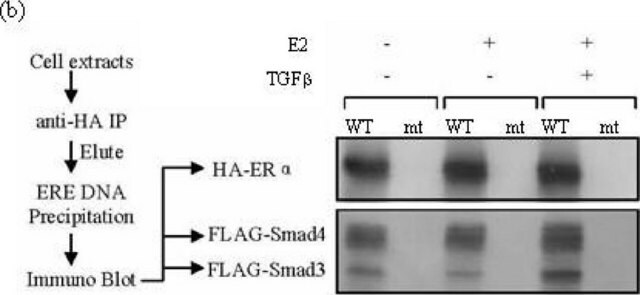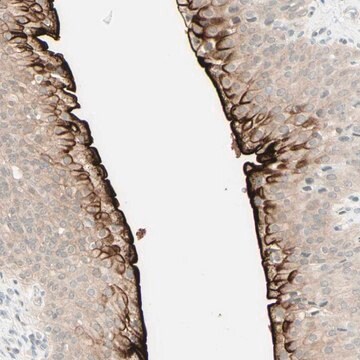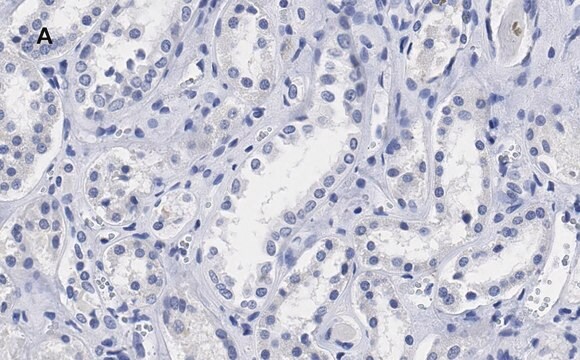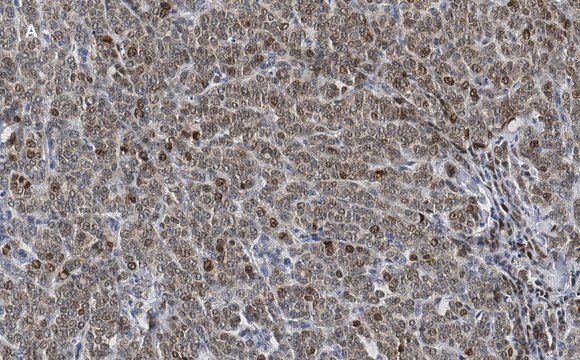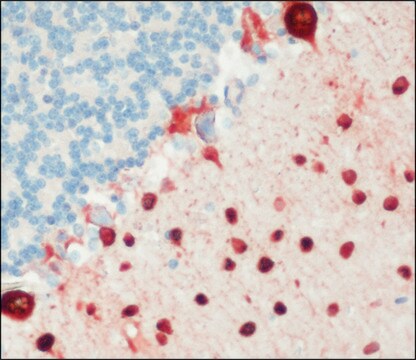04-932
Anti-Calmodulin Binding Protein Epitope Tag Antibody, clone C16T, rabbit monoclonal
culture supernatant, clone C16T, from rabbit
Sinónimos:
calmodulin 1, calmodulin 1 (phosphorylase kinase, delta), phosphorylase kinase, delta subunit
About This Item
Productos recomendados
biological source
rabbit
Quality Level
antibody form
culture supernatant
antibody product type
primary antibodies
clone
C16T, monoclonal
species reactivity
vertebrates
technique(s)
western blot: suitable
isotype
IgG
UniProt accession no.
shipped in
dry ice
target post-translational modification
unmodified
Gene Information
human ... CALM1(801)
General description
Specificity
Immunogen
Application
Epitope Tags & General Use
Epitope Tags
Quality
Western Blot Analysis: 1:2,000 dilution of this antibody detected a recombinant protein containing the calmodulin binding protein epitope tag in lysates from transformed E. coli.
Target description
Linkage
Physical form
Storage and Stability
Handling Recommendations: Upon receipt, and prior to removing the cap, centrifuge the vial and gently mix the solution. Aliquot into microcentrifuge tubes and store at -20°C. Avoid repeated freeze/thaw cycles, which may damage IgG and affect product performance.
Analysis Note
Samples containing the calmodulin binding protein epitope tag.
Disclaimer
¿No encuentra el producto adecuado?
Pruebe nuestro Herramienta de selección de productos.
Storage Class
12 - Non Combustible Liquids
wgk_germany
WGK 1
flash_point_f
Not applicable
flash_point_c
Not applicable
Certificados de análisis (COA)
Busque Certificados de análisis (COA) introduciendo el número de lote del producto. Los números de lote se encuentran en la etiqueta del producto después de las palabras «Lot» o «Batch»
¿Ya tiene este producto?
Encuentre la documentación para los productos que ha comprado recientemente en la Biblioteca de documentos.
Nuestro equipo de científicos tiene experiencia en todas las áreas de investigación: Ciencias de la vida, Ciencia de los materiales, Síntesis química, Cromatografía, Analítica y muchas otras.
Póngase en contacto con el Servicio técnico